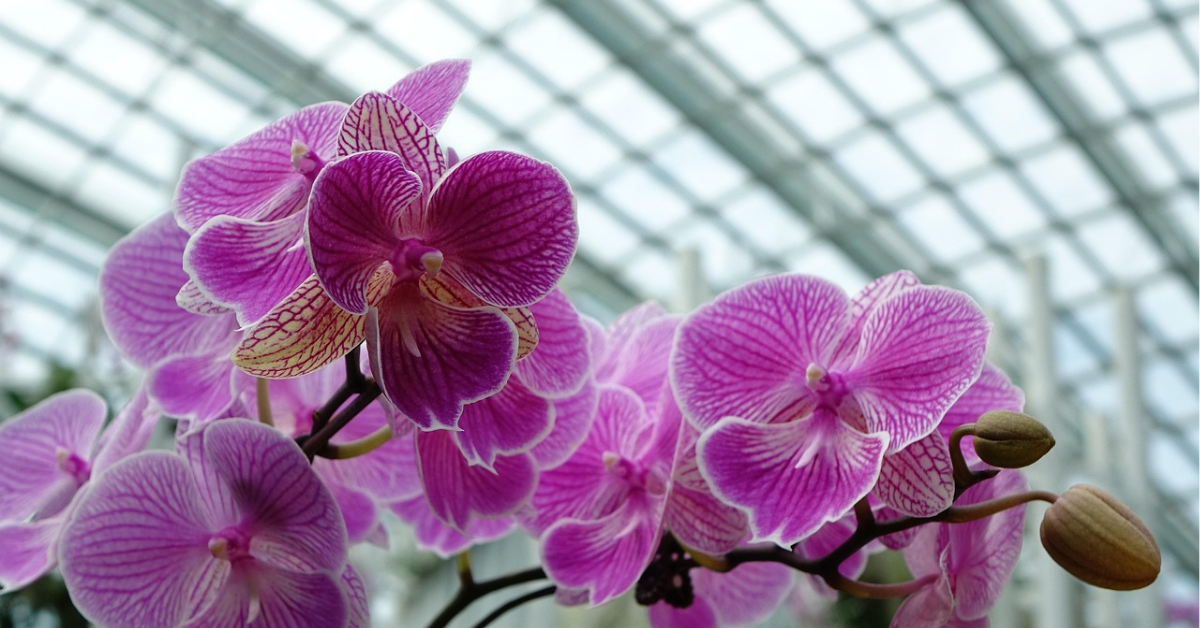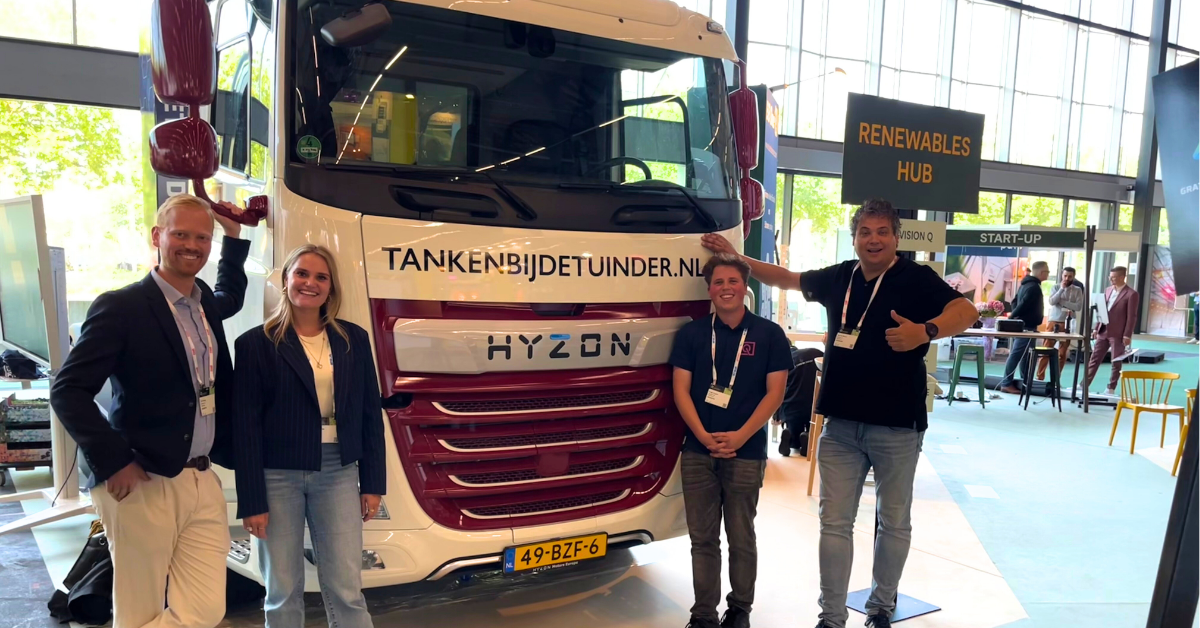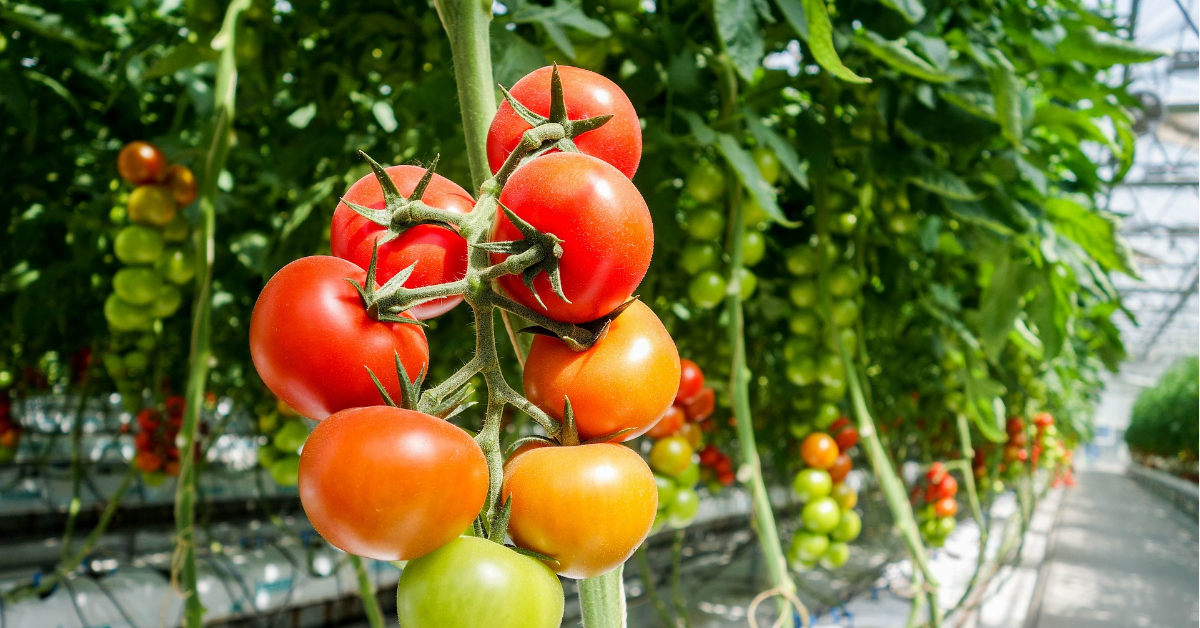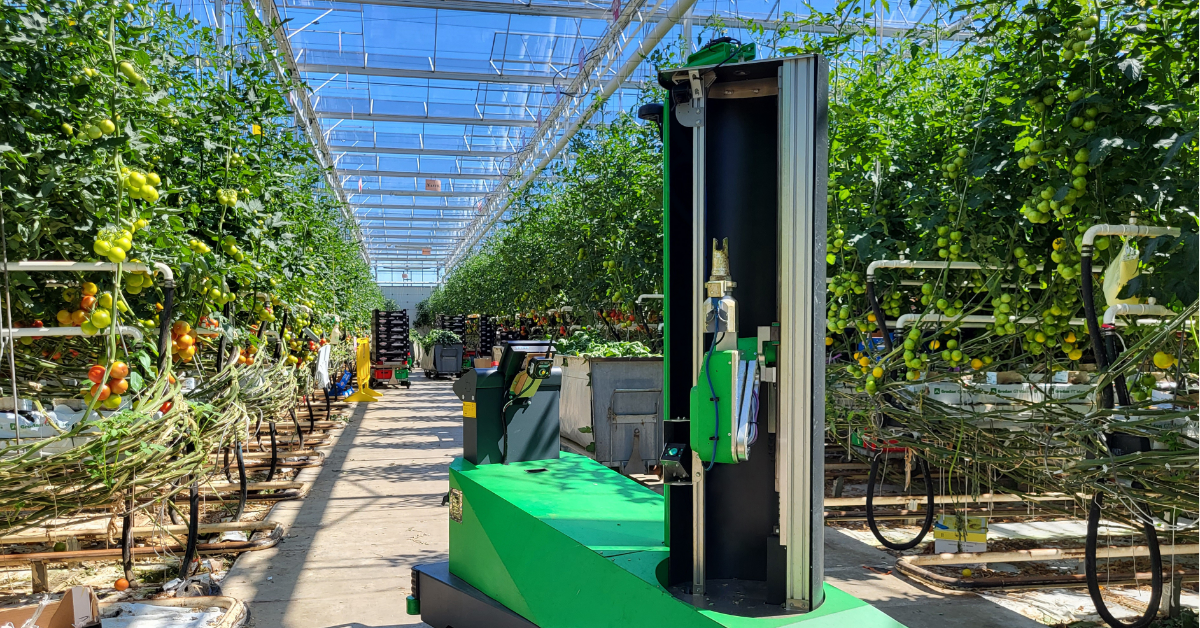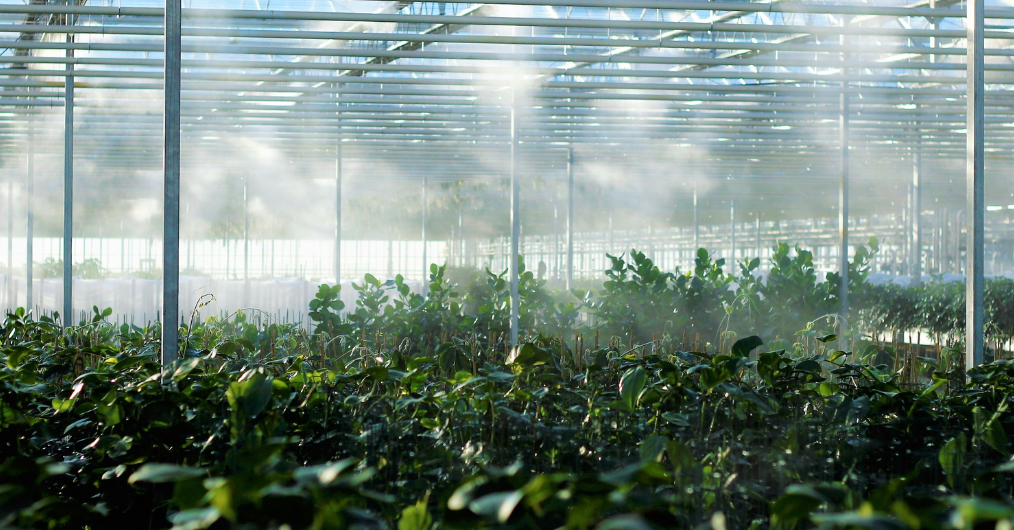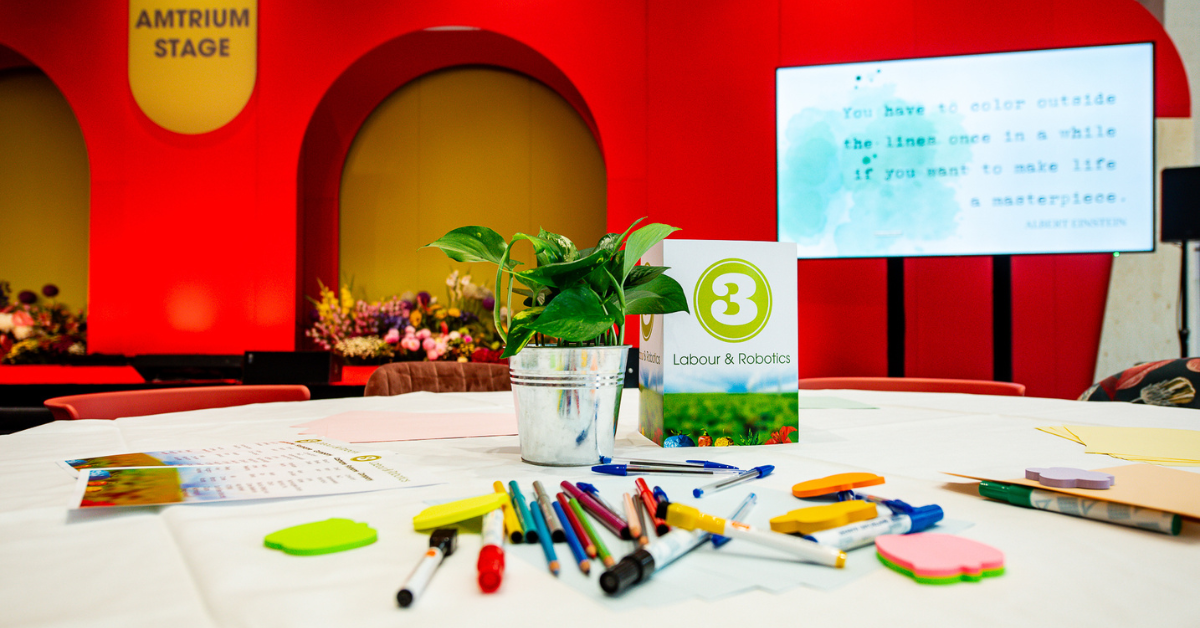Loading component...
‘We will part ways with growers who do not comply’
 Author: Jacco Strating
Author: Jacco Strating'Passion' embodies our unlimited commitment to crops, people, and technology, driving innovation across the horticulture sector. Building on the enduring importance of personal touch, GreenTech is excited to strengthen connections and unveil new initiatives designed to inspire growth and collaboration within the industry. In a series of articles, the passion within horticulture worldwide will be highlighted from different angles. This time we focus on the passion for growing greener. Garden centre chain Intratuin in the Netherlands takes the lead.
With 57 garden centres in the Netherlands, 3 in Belgium, and 11 in Germany, Intratuin is a major international player in the industry. It's also an organization committed to taking sustainable responsibility. "We're intrinsically driven when it comes to greening the world," says Elise Wieringa, Sustainability Manager at Intratuin. "It's ridiculous that we're using more and more biological pest control in horticulture, but then those natural predators are killed before the plants reach the store. We want to change that!"
Connect initiatives
Intratuin's ambition is to have 70% of its product lines chemical-free by 2030, says Wieringa. "That's why we're primarily focusing on segmenting our product range. That won't happen overnight. We have a conventional range and an organic range, and then there's a very large group of growers working in various ways to reduce their use of chemicals. They do this independently or in collaboration with other growers, for example, within a cooperative. We try to connect these initiatives as much as possible, so they can make bigger strides together." According to Wieringa, it involves a lot of talking to explain Intratuin's goals. "And we’re offering support where necessary. But above all, we want to give entrepreneurs the space to achieve this themselves."
Wieringa points out that every crop is different. "With one crop, it's easier to reduce the use of insecticide, but it’s more difficult to do the same with fungicides. With another product, the growth regulator might be the problem. There's no single template to roll out our ambitions. Also, we're in discussions with growers about the varieties they offer. One product variety can be more sensitive to diseases than another. Then why don't we switch to that other variety that requires less chemicals?" It’s not easy, Wieringa acknowledges. "We'll have to discuss and address this together with the grower and the breeder. And it also has consequences for our product range. In most cases, replacing one plant with another isn't a problem, but sometimes it can be quite a challenge. By continuing our conversations, we can find solutions together."
Questions about chemicals
Wieringa believes that the importance of chemical-free products to consumers today is underestimated. "The need has increased enormously in the last two years, especially among Dutch consumers. And we're also receiving more critical questions from consumers. These questions are almost always about chemicals. Never about peat or footprints. Consumers want a chemical-free plant or an organic plant that has a smaller negative or a larger positive impact on biodiversity. It's important that growers realise this." Intratuin also wants to communicate in an honest way. Starting in 2027, animal references, such as 'bee-friendly,' will no longer be allowed on products. Because if a plant has chemicals on it, it's not good for bees, even if the product itself is."
Intratuin will part ways with growers who do not comply with the company's ambitions. "That's the reality," says Wieringa. "We have basic requirements for suppliers as of 2027. If you don't meet a minimum certification and aren't willing to sign the sector's ambition, we can no longer work with you. Of course, we realize this change is difficult for some growers. That's why we want to listen to them, to find solutions together. It takes a lot of time and energy to have these conversations and to gain the trust of suppliers to share their concerns with you. But transparency ensures that we can provide clarity and the right support." Wieringa emphasizes that the pressure isn't just on growers in the Netherlands. "Foreign suppliers also have to comply. Of course, we look at the circumstances a grower faces, such as the climate, the level of expertise, etc. But ultimately, everyone must comply with the same rules."
Also change ourselves
On the other hand, Intratuin rewards growers who dare to take steps. "If you can demonstrate that you use fewer chemicals or grow organically, you'll get a more prominent spot on the shelf." At the same time, Intratuin is also working on improvements itself. "We're asking growers and breeders to change, so we also have to change ourselves. Together with growth specialist Van Iperen, we've launched a pilot project. We are now deploying biological pest control at our garden centres. That's quite a challenge. We don't have just one product, but many different plants in warm and cold conditions. Some things are already going very well, others aren't. But you learn a lot from these kinds of projects. And with that knowledge, we can also answer consumer questions in a better way."
100% Grown Green
100% Grown Green is a project launched in 2024 within the Dutch horticultural sector. It focuses on making the cultivation of vegetables, plants and flowers fully sustainable, with the goal of growing crops profitably in an integrated, resilient cultivation system incorporating green, biological, and technological solutions. Crop protection will then be entirely based on preventing diseases and pests by increasing plant resilience and using biological and sustainable methods. The ultimate goal of the project is to achieve fully green and profitable cultivation methods for various crops, such as bell peppers, tomatoes, eggplants, and cucumbers (vegetables) and chrysanthemums, gerberas, phalaenopsis, alstroemeria, and kalanchoe (ornamentals). By combining these various strategies and collaborations, the project is working towards a future greenhouse horticulture that is significantly less dependent on chemical agents and more aligned with society's sustainability goals.
Potted plant company Vilosa is one of the companies currently gaining experience within the 100% Grown Green project. The company is a leading player in the international houseplant market. This is all thanks to a combination of innovation, sustainability, and a passion for growing green. "Sustainability is our top priority," says former owner Fred van Luijk of Vilosa. "We make it a priority, and we communicate that. Crop protection is part of that." Van Luijk represents kalanchoe growers on the national crop committee and is part of the driving force for the 100% Grown Green project.
Use of chemicals is declining
Until recently, Vilosa relied almost exclusively on chemical pesticides. "The main pests in kalanchoe are aphids and root aphids, and the fungal disease powdery mildew also plays a role," says site manager Leon van Rijn. "We were able to keep these pests well under control with a broad-spectrum systemic product that was effective against both aphids. For powdery mildew, we used sulfur evaporators. That gave us good control over the crop." Nevertheless, the company feels the urgency to change. The product's approval has expired, and its expiration date is set at the end of October 2025. "That's what's happening now with this product, but we see that the use of chemicals is declining anyway," says Van Luijk. "We want to master new methods, so we're not caught off guard."
The kalanchoe pilot group consists of four growers. The largest trial is taking place at Vilosa, covering a whopping 40,000 square meters. An entire greenhouse. "If you start this, you need to go all in, and this location is ideally suited for it," explains Van Rijn. "There's only one crop, and the layout is suitable. It's a big leap into the unknown, but we're going for it." Kalanchoe cultivation takes nine to ten weeks, excluding three weeks of long days and the rest of the short days. Even before the first aphids appeared, parasitic wasps and gall midges were released. Ladybugs followed in May and June in areas with more aphids. "We also use nettle manure, which seems to enhance the effectiveness of the biological control agents."
Resilient cultivation
The results after six months are positive. "In the end, we only made one adjustment," says Van Luijk with satisfaction. "That's already a big win after this first attempt." They succeeded in working largely pesticide-free for six months. Meanwhile, they're looking ahead. Vilosa and their colleagues are searching for less sensitive varieties and methods for resilient cultivation. "Resilient cultivation is the future," says Van Luijk. "This is a major step, especially in a crop where biological control isn't yet common." The puzzle of achieving fully integrated cultivation is only just beginning. But the growers are looking forward to a future in which kalanchoe is grown green, without reliance on chemicals.

.png?h=628&iar=0&w=1200)
